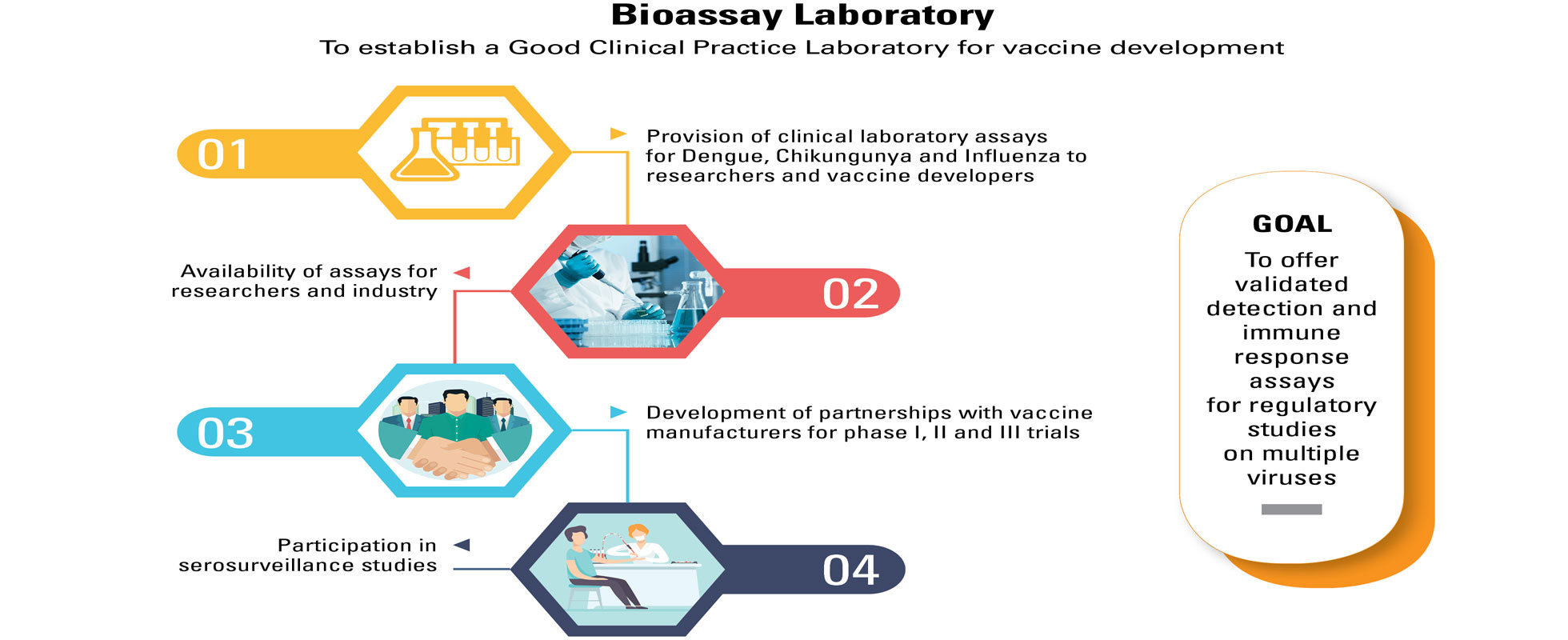Research Facility : Bioassay Laboratory
VISION
To be a cGLP laboratory, maintaining global standards, for clinical assay services for vaccine preventable pathogens.
MISSION
Committed to providing excellence and innovation in the clinical development of vaccines and biologicals, thereby positively contributing to health care management of the community.
ABOUT US
The Bioassay laboratory (BL) has been established as a national resource platform for the clinical development of vaccines and biologicals and aims to provide clinical assay services for vaccine-preventable pathogens as per the regulatory standards. The laboratory has currently established molecular and serological assays for Dengue and Chikungunya and is seeking accreditation from the National Accreditation Board for Testing and Calibration Laboratories (NABL) as per the ISO-17025:2017 standard. The laboratory is also validating plaque reduction neutralization titre assays for dengue and Chikungunya and other mosquito-borne viruses for the next phase of accreditation. We are also an ICMR-recognized COVID-19 testing facility, the first one in Faridabad-Palwal region and have processed more than 20,000 clinical samples for diagnosis (April-July 2020) from several districts to date. BL is also managing the mobile testing laboratory for COVID-19, the only one of its kind in India.
INFRASTRUCTURE
With an area of around 2000 sq. ft., the laboratory has been set up as per the guidelines of WHO and NABL. Eight separate rooms have been created to maintain unidirectional workflow and segregate the activities such as Flow cytometry, Serology, Reagent preparation, Nucleic acid isolation, Template addition, PCR and post-PCR rooms and Animal cell culture for virus cultivation. All equipment has been calibrated and validated as per the NABL requirements.
PARTNERSHIPS
BL is involved in partnerships and collaborations with both national and international agencies wsuch as ICGEB, New Delhi; IISc, Bangalore; CMC, Vellore; Manipal Virus research Centre; IVI, South Korea; AFRIMS, Thailand and WHO reference lab, Australia.

